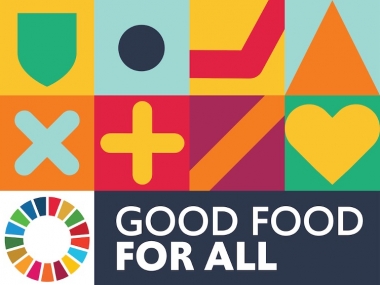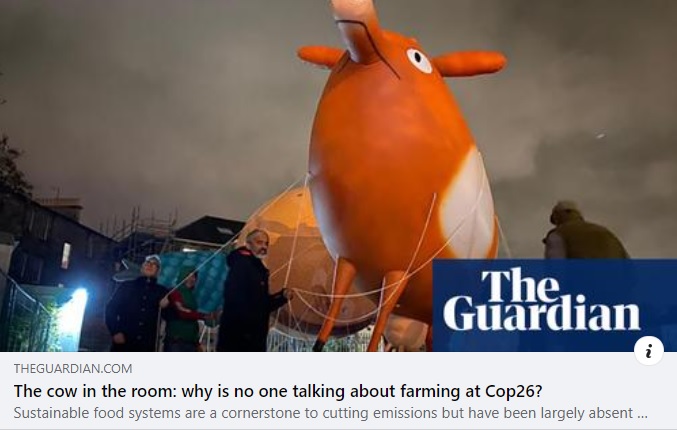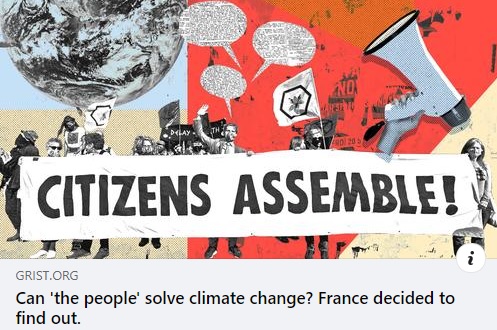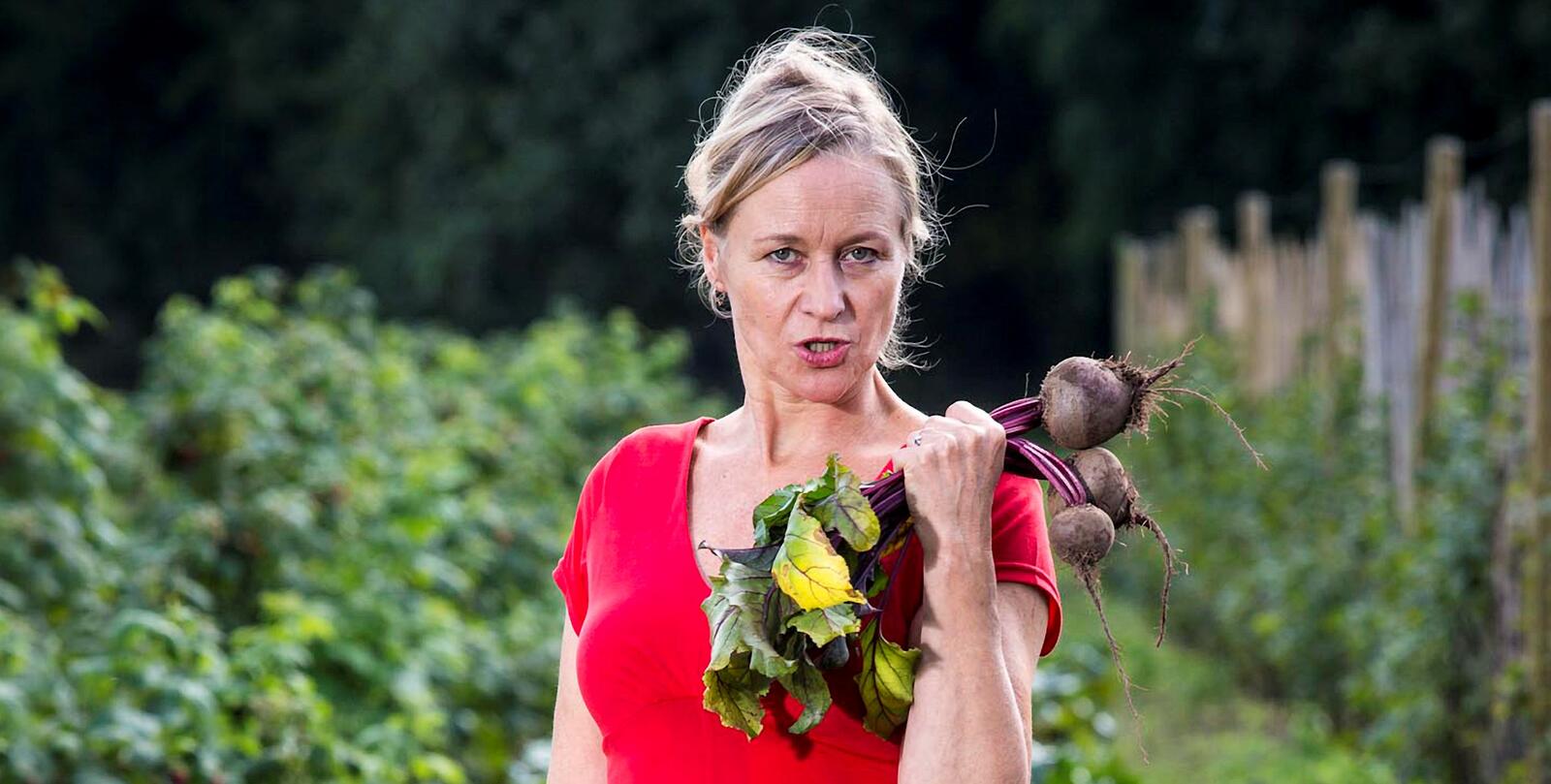Public Policies & Governance for Territorial Food Systems
Edited on
09 February 2022The transition towards territorial food systems requires new public policies that consider innovative and effective formulas for participatory governance, among other facilitating elements. Food democracy impacts citizen empowerment when it comes to bringing together actors for this necessary action for change. The local perspective and the consolidation of participatory structures can be nurtured through networks such as those promoted by the URBACT Programme through Local Action Groups.

1) Food democracy from the territories
In the words of Olivier de Schutter, a Special Rapporteur on extreme poverty and human rights, the current crisis "validates a whole series of warnings about the lack of resilience of our food systems." This makes it more urgent to have public policies committed to fostering territorial food systems developed in line with the Sustainable Development Goals. Cities, in combination with rural areas, are playing a proactive role in this direction as confirmed by the numerous initiatives underway, the existence of collaborative networks such as MUFPP, ICLEI-RUAF CITY FOOD Network or the most recent Glasgow Food and Climate Declaration, also signed by the FOOD CORRIDORS (URBACT III) network of partners.

Source: The Guardian
If we look at the recent COP 26 summit as an exponent of the relevance and impact of the role played by different sectors in the context of political development, the scant attention paid at this conference to globalised food production and consumption is striking, even though this is recognised as the cause of around 25% of global emissions. It calls for the need to boost drivers that highlight the transition alternatives within the food system's complex web under different forms of democratisation and the promotion of territorial governance initiatives.
The acceleration of this necessary transition must be based on solid and committed public policies, together with all the changes to be implemented by the private sector, the drive of organised society, and the support of research and innovation.
In terms of public food policy, Corina Hawkes, Director of the Centre for Food Policy at the University of London, advocates a global reset based on five steps: 1) Empower leaders to understand and apply solutions across multiple interconnected systems. 2) Identify and employ a new framework of interconnectors between different systems, collaborating to create operational change that manifests itself in ongoing actions. 3) Identify and deploy solutions across multiple systems that contribute to preventing, mitigating, and managing the negative impact of human action in the face of global challenges. 4) This framework of interconnected systems entails a framework of trade-offs to be managed in order to balance the different effects between the parties involved. 5) Initiate system co-design to address conflicts related to the design of the different systems in action.
Working in a direction as necessary as ambitious requires articulating new forms of social conversation beyond the already known solutions. The Citizens' Climate Assemblies launched in countries such as Sweden, Ireland, Scotland, England, France, and Spain are based on the fragility observed in democratic systems to make sustainability a central axis of the necessary global reset. This proposal for social innovation is structured in three different phases - learning, deliberation, and decision-making - and attempts to answer central questions to tackle these significant challenges, offering at the end a series of policy recommendations to be delivered to the relevant public decision-makers. This methodology can be applied to different sectoral areas and geographical scales, incorporating the necessary adaptations.

Source: Grist
While the last two decades have seen food become a frequent new ingredient of urban and, to a lesser extent, territorial policies, new challenges are beginning to emerge beyond this lack of spatial integration. Similar is the case for other vertical, horizontal and sectoral integration levels where silo working remains a prominent reality. Unfortunately, many of the policies experimented with are project-specific, lacking the permanent commitment of institutions and policy-makers to political action. Lack of inclusion also threatens to become a structural danger of these policies, unable to guarantee equal access to sufficient and healthy food for all citizens. Last but not least, it is essential to add monitoring and evaluation mechanisms to ongoing policies to measure their results and impacts, and some useful tools are already available, such as the one developed by MUFPP.
2) Participatory democracy
Beyond theoretical and practical participatory models, whether at urban or rural level, as well as specific projects such as SHERPA or MOVING based on Multi-Stakeholder Platforms, we generally find a dynamic context that reflects the limits imposed by the global food system on citizens and the institutions closest to them, deprived of intervening in the governance of the system.
Food democracy remains a central challenge in promoting the transition to a sustainable food system. The Carasso Foundation (2021) defines "food democracy" as all public and formal or informal initiatives based on the co-construction, inclusion, and empowerment of local actors, provided that they contribute to strengthening their capacity to initiate, lead and accelerate through the implementation of collective projects the changes necessary to meet their expectations. Food democracy is a call to action to all types of actors involved in food systems aimed at strengthening their power of action and decision-making.
The food debate is becoming more democratic, as we can see daily within the European Union.

Source: The Guardian Source:Foodnavigator
3) Food governance from a local perspective
As we have mentioned, most political decisions regarding agriculture and food are taken at the national or supranational level. However, there are an increasing number of initiatives launched by cities that promote political strategies that seek to re-localise the complex web of the food system. Even on a limited scale, municipalities can promote policies and alliances from which to support local food strategies that guarantee food rights, support the local economy, provide infrastructures, and support resources or promote public procurement systems aligned with these food sustainability objectives, as shown in the case of the city of London.
In any case, territorial food governance is a new policy area. In this context, cities around the world, with particular emphasis on Canada, the USA, and Europe, have developed different forms of governance structures in parallel to these strategies. The actors and organisations that manage a resource base define how they can describe the governance and what rules of management should be designed and put into practice (Ostrom, 2009). The recent connectivity between the parts of the food system, the flow of information, environmental challenges, and cultural changes are some of the reasons that have led many citizens to organise themselves to demand a new model that is more in line with these changes and empowers them again.
The so-called Food Policy Councils (FPC) stand out among these food governance structures. This structure promotes open discussion between actors with different points of view and interests, often relying on external advice and the cities' commitment for its implementation. However, some structures are independent of political control and, therefore, less institutionalized and hybrid formulas. They combine the existence of assembly-based participation mechanisms with others based on specific working groups and coordination and management instruments. Several references can be cited in the EU framework, where cities such as Ghent, Amsterdam, or Milan show solid initiatives and a rich repertoire of localised initiatives in the United Kingdom. In some regions, such as Wallonia in Belgium, regional federated initiatives are launched. The integration of several municipalities in the Luca area (Italy) is also an example in this innovative scenario of food governance adapted to small towns.

Source: Gent en Garde
A recent study (Fesenfeld, 2016) proposes a direct linkage and supervision by the Mayors' office and an organisation that combines three essential pillars. On the one hand, the collective of actors involved in the FPC avoids internal conflicts arising from the rigid administrative structures under which Food Policy Councils can be created and managed. On the other, a technical commission is in charge of the permanent mapping of the local food system, and finally, the figure of a general manager or coordinator of the food area. It seems clear that, being innovative organisational models, these initiatives in a transition towards sustainable food systems also need new governance approaches to address the stress factors they face, such as internal growth, the decentralisation of tasks, the territorial nature, limited access to local resources and the divergence of values among the actors involved, among others.
Some authors (Manganelli et al., 2019) speak of hybrid governance characterised by patterns of interaction between actors, aligning a purpose towards interests whose common goals channel the connection between them even though they belong to different organisational and institutional spheres.
4) How could URBACT Local Groups be the essential basis for building a city governance structure?
The experience carried out by URBACT on the dynamisation, and collaborative work based on Local Stakeholder Groups offers some ideas on how these groups, beyond the work aimed at the analysis and development of territorial strategies, can be the trigger for stable structures of participation and governance around democratic models of resource management and local political initiatives. Amid such turbulent times, Local Groups are a valuable asset as spaces for reflection, incubating ideas, and implementing solutions.
The creation of these Local Groups and their maintenance throughout the life cycle of these networks (generally 2 to 3 years) is always a challenge that faces different difficulties, undoubtedly increased during the pandemic. These difficulties include the other degree of motivation and commitment of the stakeholders, their stability and constancy, the lack of diversity or scarce presence of certain profiles, the lack of innovation or creativity, and internal conflicts.
In the FOOD CORRIDORS network, several partners such as the Tartu Rural Development Association (Estonia) or the CIM Região de Coimbra (Portugal) have configured their respective Local Groups on the basis of existing territorial participatory structures, adjusting the profile and degree of participation to the particularity of the project and considering extending its continuity beyond the project's life cycle.
In parallel, another FOOD CORRIDORS partner, the Unione dei Comuni della Bassa Romagna (Italy), has included in the Integrated Action Plan to be developed in the coming years the
concept of FOOD PARLIAMENT as an instrument through which to integrate a governance model in the food strategy of the territory.
The main goal of the Food Parliament (FP) is to provide a governance platform focused on food policies capable of tackling local challenges and harmonizing priorities coming from different stakeholders.
The Food Parliament is a permanent working group that coordinates and facilitates relations among the local actors involved in the different aspects of local food production, promotion, and distribution. The FP works as a light, and non-institutional governance system will contribute with ideas and debates about measures related to the elaboration of tailored food policies and disseminate the group's approach during meetings that could take the form of "roadshows" hosted in different places of the territory.
The leading organisation is the Union of Municipalities of Bassa Romagna, which will be the referring actor for the network of stakeholders. The Union will have a hosting role in terms of diffusion within the territory. The ULG members (third sector associations, bank foundations, enterprises) are the core of the FP and share proposals, monitor and evaluate actions, and condition and enhance local food policies.
As an informal governance body, the Food Parliament will directly benefit the different round table participants. The permanent table will offer the possibility to share, discuss and take decisions in coherence with the current economic and relational resources. Moreover, the FP will positively affect local communities and the food chain system (farms, food transformation, distribution, and restaurants).
This article has been written in parallel to designing Integrated Action Plans by the partner cities of the FOOD CORRIDORS network. It is intended to provide information to inspire their proposals for action. A more practical version of these contents will be tested in transnational workshops of the network. Other articles have been published in the last months in line with the FOOD CORRIDORS theme described in the Baseline Study of the Project.
 * Antonio Zafra is the Lead Expert of the FOOD CORRIDORS network
* Antonio Zafra is the Lead Expert of the FOOD CORRIDORS network
 Submitted by Vera Lopes on
Submitted by Vera Lopes on
